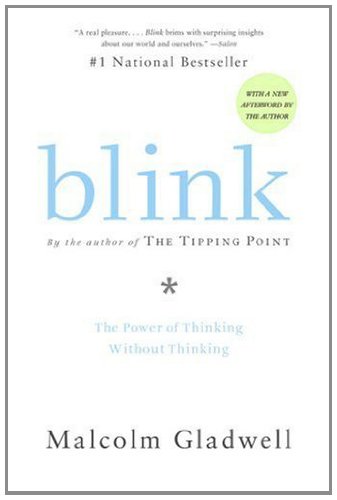All Nonfiction
- Bullying
- Books
- Academic
- Author Interviews
- Celebrity interviews
- College Articles
- College Essays
- Educator of the Year
- Heroes
- Interviews
- Memoir
- Personal Experience
- Sports
- Travel & Culture
All Opinions
- Bullying
- Current Events / Politics
- Discrimination
- Drugs / Alcohol / Smoking
- Entertainment / Celebrities
- Environment
- Love / Relationships
- Movies / Music / TV
- Pop Culture / Trends
- School / College
- Social Issues / Civics
- Spirituality / Religion
- Sports / Hobbies
All Hot Topics
- Bullying
- Community Service
- Environment
- Health
- Letters to the Editor
- Pride & Prejudice
- What Matters
- Back
Summer Guide
- Program Links
- Program Reviews
- Back
College Guide
- College Links
- College Reviews
- College Essays
- College Articles
- Back
Blink: The Power of Thinking Without Thinking by Malcolm Gladwell MAG
The scene opens with a young married couple searching for a suitable family car. They make the trek across town to a used car dealer to find the perfect one: not too old, not too many miles, not too expensive. The salesman points them to the paragon of cars, one that's got just 10,000 miles, driven solely by an older woman from her home to the grocery store. But there's something odd about the car, though the couple can't put their finger on it. They decide it would be best to wait, and they leave.
A few days later in the newspaper, the husband reads that the dealership was closed down. The reason? The owner had committed fraud. The cars he was selling had apparently been driven many more miles than buyers were told. There was new paint hiding bumps and scratches. The young couple were lucky they had not bought the car. But was it luck? Or was it something so subtle that only their subconscious could perceive a problem.
This scenario is a perfect example of what Malcolm Gladwell addresses well in Blink: The Power of Thinking Without Thinking. Throughout the book, Gladwell focuses on several areas of “rapid cognition” that help people make decisions and judgments, sometimes without consciously realizing it.
One of these areas of thinking is what Gladwell calls “thin-slicing.” This is the ability to take a large amount of information and keep just what is useful, while discarding the rest. Gladwell uses entertaining examples to present his theory and how it can be used to accurately analyze a situation. Anecdotes include predicting the likelihood of a heart attack, and detecting a college student's personality based on his or her dorm room.
Throughout the book, Gladwell uses extremely interesting stories to present the information, rather than giving dull facts in a monotonous fashion, and is able to keep the reader's interest. Though much of the information can be difficult to comprehend at first – like understanding that your subconscience may be prejudiced when you believe you are not – Gladwell does an excellent job explaining what he means.
If you're looking for a book that makes you question how your mind works and how you come to conclusions, then Blink is definitely for you.
Similar Articles
JOIN THE DISCUSSION
This article has 0 comments.

